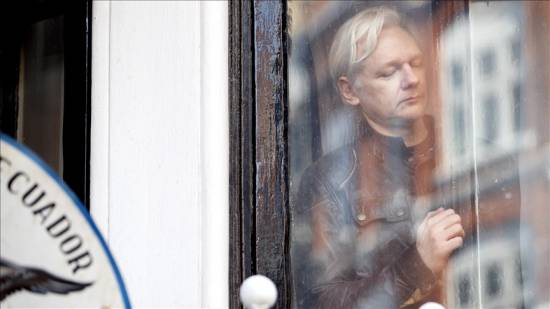WikiLeaks co-founder Julian Assange has appealed the UK Home Office’s decision to extradite him back to the US on espionage charges.
Assange’s move will trigger a new battle between his legal team and the Home Office, which may take for months before a final decision is reached.
Gareth Pierce, from Assange’s legal team, said they filed on Thursday two appeals to the UK’s High Court to fight his extradition.
The deadline for the appeal was expiring on Friday after Home Secretary Priti Patel’s decision that Assange can be extradited a fortnight ago.
The cross-appeal hearing dates will be announced by the court later.
Meanwhile, Assange's supporters on Friday demonstrated with a hired iconic red bus in front of the Home Office. The slogans on the bus included “Journalism is not a crime” and “Free Assange Now.”
The International Federation of Journalists (IFJ) has launched a campaign to call for Assange's release.
“Punishing Assange for exposing war crimes poses a threat to all journalists worldwide,” it said.
“The IFJ is calling on the United States government to drop all charges against Julian Assange and allow him to return home to be with his wife and children.
“The IFJ is also calling on all media unions, press freedom organisations and journalists to urge governments to actively work to secure Assange’s release.”
Patel signed an order to extradite Assange to the US on June 17.
Assange's extradition order was passed to the secretary by the UK courts in May, confirming that the US assurances on how Assange would be treated were sufficient for extradition.
The order said the UK courts found that the extradition would not be "incompatible with his human rights," adding that "he will be treated appropriately" in the US.
Assange will face 18 counts of hacking the US government computers and violating the espionage law if he is extradited to the US and a potential prison sentence for years.
He was dragged out of Ecuador's embassy building in London last year, where he took refuge for more than seven years.
The British police said he was arrested for skipping his bail in 2012, and on behalf of the US due to an extradition warrant.
Later, he was found guilty of breaking his bail terms in 2012 after failing to surrender to security services by the Westminster Magistrates' Court and given a 50-week prison term./aa


